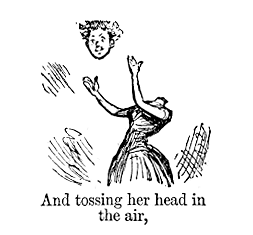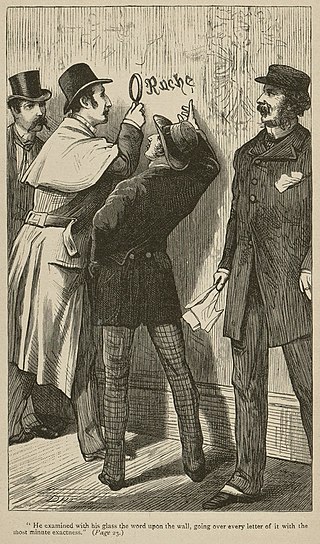An idiom is a phrase or expression that typically presents a figurative, non-literal meaning attached to the phrase. Some phrases which become figurative idioms, however, do retain the phrase's literal meaning. Categorized as formulaic language, an idiom's figurative meaning is different from the literal meaning. Idioms occur frequently in all languages; in English alone there are an estimated twenty-five million idiomatic expressions.

A cliché is an element of an artistic work, saying, or idea that has become overused to the point of losing its original meaning or effect, even to the point of being weird or irritating, especially when at some earlier time it was considered meaningful or novel. In phraseology, the term has taken on a more technical meaning, referring to an expression imposed by conventionalized linguistic usage.
Real life is a phrase used originally in literature to distinguish between the real world and fictional, virtual or idealized worlds, and in acting to distinguish between actors and the characters they portray. It has become a popular term on the Internet to describe events, people, activities, and interactions occurring offline; or otherwise not primarily through the medium of the Internet. It is also used as a metaphor to distinguish life in a vocational setting as opposed to an academic one, or adulthood and the adult world as opposed to childhood or adolescence.

The expression “the elephant in the room” is a metaphorical idiom in English for an important or enormous topic, question, or controversial issue that is obvious or that everyone knows about but no one mentions or wants to discuss because it makes at least some of them uncomfortable and is personally, socially, or politically embarrassing, controversial, inflammatory, or dangerous. The metaphorical elephant represents an obvious problem or difficult situation that people do not want to talk about.

A head is the part of an organism which usually includes the ears, brain, forehead, cheeks, chin, eyes, nose, and mouth, each of which aid in various sensory functions such as sight, hearing, smell, and taste. Some very simple animals may not have a head, but many bilaterally symmetric forms do, regardless of size.

The passive voice in English is a grammatical voice whose syntax is marked by a subject followed by a stative verb complemented by a past participle. For example:

A red herring is something that misleads or distracts from a relevant or important question. It may be either a logical fallacy or a literary device that leads readers or audiences toward a false conclusion. A red herring may be used intentionally, as in mystery fiction or as part of rhetorical strategies, or may be used in argumentation inadvertently.
"Break a leg" is a typical English idiom used in the context of theatre or other performing arts to wish a performer "good luck". An ironic or non-literal saying of uncertain origin, "break a leg" is commonly said to actors and musicians before they go on stage to perform or before an audition. Though the term likely originates in German, the English expression is first attributed in the 1930s or possibly 1920s, originally documented without specifically theatrical associations. Among professional dancers, the traditional saying is not "break a leg", but the French word "merde".

In Greek myth, dragon's teeth feature prominently in the legends of the Phoenician prince Cadmus and in Jason's quest for the Golden Fleece. In each case, the dragons are present and breathe fire. Their teeth, once planted, would grow into fully armed warriors.
"Hail fellow well met" is an English idiom used when referring to a person whose behavior is hearty, friendly, and congenial, in the affirmative sense.
"Send to Coventry" is an idiom used in England meaning to deliberately ostracise someone. Typically, this is done by not talking to them, avoiding their company, and acting as if they no longer exist. In essence, and by modern parlance, to ‘ghost’ someone. Coventry is an historical cathedral city in Warwickshire.

An idiom is a common word or phrase with a figurative, non-literal meaning that is understood culturally and differs from what its composite words' denotations would suggest; i.e. the words together have a meaning that is different from the dictionary definitions of the individual words. By another definition, an idiom is a speech form or an expression of a given language that is peculiar to itself grammatically or cannot be understood from the individual meanings of its elements. For example, an English speaker would understand the phrase "kick the bucket" to mean "to die" – and also to actually kick a bucket. Furthermore, they would understand when each meaning is being used in context.
Get a life is an idiom and catch phrase that has gained international usage. It is intended as a taunt, to indicate that the person being so addressed is attempting to devote themselves to other people's responsibilities. Sometimes the phrase is used to describe people who are viewed as officious or meddling in the affairs of others. It is another way of saying "get your own life", or "mind your own business".

It takes two to tango is a common idiomatic expression which suggests something in which more than one person or other entity are paired in an inextricably-related and active manner, occasionally with negative connotations.

"Don't throw the baby out with the bathwater" is an idiomatic expression for an avoidable error in which something good or of value is eliminated when trying to get rid of something unwanted.
Eighty-six or 86 is American English slang used to indicate that an item is no longer available, traditionally from a food or drinks establishment, or referring to a person or people who are not welcome in the premises. Its etymology is unknown but seems to have been coined in the 1920s or 1930s.

"With flying colours" is a popular idiom of the English language that is used to describe how well someone has completed a task. For example, a common use of the phrase is to refer to someone having passed a test or other examination "with flying colours," i.e. passed the test easily or with an exceptionally high score. The phrase originated in the Age of Discovery, when ships would return to port with their flags ("colours") either raised or lowered to signify that the ship had either been successful or defeated, with raised flags indicating success and lowered flags indicating defeat. Thus, "with flying colours" literally means that someone has completed a task, although idiomatically connotes particular success in that task.

Skeleton in the closet or skeleton in the cupboard is a colloquial phrase and idiom used to describe an undisclosed fact about someone which, if revealed, would damage perceptions of the person. It evokes the idea of someone having had a human corpse concealed in their home so long that all its flesh had decomposed to the bone. "Cupboard" may be used in British English instead of the American English word "closet". It is known to have been used as a phrase, at least as early as November 1816, in the monthly British journal The Eclectic Review, page 468. It is listed in both the Oxford English Dictionary, and Webster's Dictionary, under the word "skeleton". The "Cambridge Academic Content Dictionary" lists it under this but also as a separate idiom. In the most derisive of usage, murder, or significant culpability in a years-old disappearance or non-understood event, may be implied by the phrase.

In the traditional grammar of Modern English, a phrasal verb typically constitutes a single semantic unit composed of a verb followed by a particle, sometimes combined with a preposition. Alternative terms include verb-adverb combination, verb-particle construction, two-part word/verb or three-part word/verb and multi-word verb.
In bocca al lupo is an Italian idiom originally used in opera and theatre to wish a performer good luck prior to a performance.










